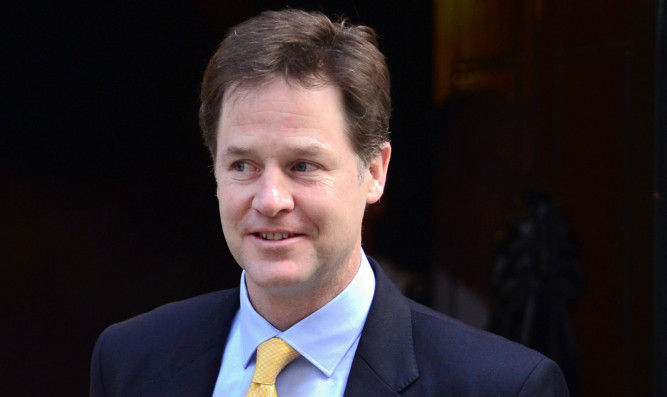
Nick Clegg has called on David Cameron to recognise a Palestinian state in response to a new hard-line stance from Israel.
The Deputy Prime Minister said Benjamin Netanyahu’s decision to rule out a two-state solution during his successful election campaign was “extremely worrying”.
He suggested that unless the Israeli leader backed down the UK should follow through on an indicative vote by MPs last October and formally recognise Palestine.
The Liberal Democrat leader’s comments, in his regular LBC radio phone in, came after the White House warned that it was “re-evaluating” its position on the Middle East peace process.
Mr Netanyahu’s Likud is set to remain the biggest party in the Knesset, with 30 out of 120 seats. He is expected to stay as prime minister at the head of a coalition with nationalist, religious and ultra-Orthodox allies.
Mr Cameron has congratulated Mr Netanyahu on the result, insisting Britain is “one of Israel’s firmest friends” and he “looked forward to working with new government”. Downing Street has, however, made clear that he still supports a two-state solution.
Mr Clegg urged the Tory leader to show “consistency” in his attitude to the long-running issue.
“If Benjamin Netanyahu now unilaterally has decided to rule out the prospect of a Palestinian state then I think it is inevitable the British parliament – as it voted to a few months ago – should rule a Palestinian state in,” the Lib Dem leader said.
“In other words, that we should then in response – and it would be in response to extreme provocation from Netanyahu – act to recognise a Palestinian state.
“It cannot be right given that this is the crucible of so much violence and division across so many communities, that one man, in what I assume was a desperate attempt to curry some votes, should tear up the basic tram lines on which a peace deal is likely to occur.
“He may be democratically elected, but in any peace arrangement you need the support of the world and you need to be able to negotiate with the other side.”
Mr Clegg went on: “Politicians in London surely, and this applies to David Cameron as much as anyone else, should be consistent with what politicians in London, from all parties by the way, have said for generations now – which is that the basic premise is of a two-state solution.
“I fervently hope that it actually appears to have been breathless rhetoric which he is now going to row back from.
“If he carries out his threats to rule out a two-state solution and expand illegal settlements then I think the world – including the British parliament – would have no option inevitably but to recognise a Palestinian state.”
Asked about Mr Cameron’s position, Mr Clegg replied: “He needs to ask himself, the Conservatives need to ask themselves, what on earth is the consistency with the long held Conservative Party view, Labour Party view, Liberal Democrat Party view, and the international view reflected by the comments from the White House over the last 24 hours that a two state solution remains the only viable route for peace and security for the people of Israel and the people of the region as a whole?”
MPs backed recognising Palestine by a margin of 274 to 12 in October.
Ministers abstained on the non-binding motion, put forward by Labour MP Grahame Morris and amended by former Foreign Secretary Jack Straw.
Middle East Minister Tobias Ellwood said at the time that Britain reserved the right to recognise Palestine when it was “appropriate for the peace process”.

Enjoy the convenience of having The Sunday Post delivered as a digital ePaper straight to your smartphone, tablet or computer.
Subscribe for only £5.49 a month and enjoy all the benefits of the printed paper as a digital replica.
Subscribe